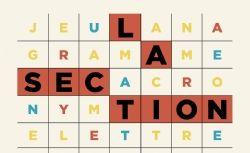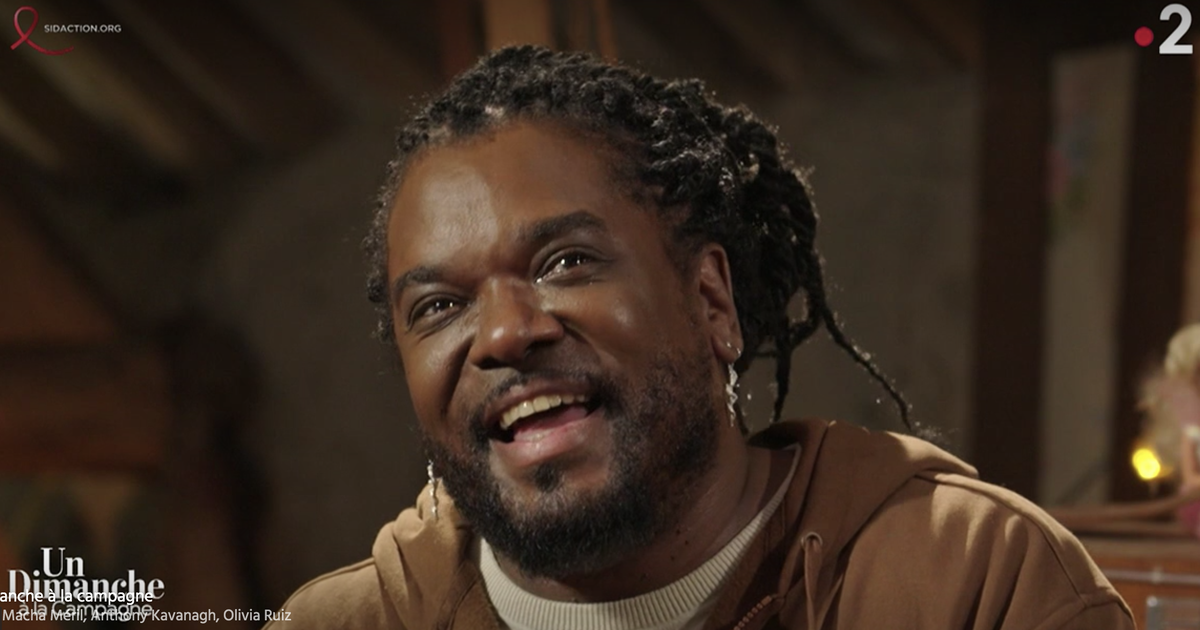Usually, unfinished novels are the property of dead authors.
We find them in drawers, abandoned in the middle of bundles of leaflets ... But
La Section Lucky
(Ed. Du Rocher) is the work of a living author.
Frédéric Schmitter is an Oulipian, that is to say a writer freed from linguistic constraints.
The main thing for him is not so much the story he tells as his process of creation.
It therefore breaks away from the traditional narrative scheme of the novel, to offer an unfinished story.
"READ ALSO - Jacques Perry-Salkow:" With anagrams, we interfere in the flesh of words "
This is very frustrating!
But this is where all the interest of this text with hole hides.
It is an ode to potentiality.
Once opened, you have to dig out the words, travel through the verb and fill in the blanks, look aside at the sentences that hide others.
The Lucky Section
is a poetic game box where the letters merge and divorce according to the figures of speech that make up the pages.
In 1984, Gaspard, a child psychiatrist and writer, proposed to tackle various writing techniques during a school year with six children based on six Ponant islands.
The author teaches them to compose texts with or without consonants, in anagram or palindrome.
It is sometimes funny but often touching, like the story of Anne, who rewrites in her own way
The Disappearance
of Georges Perec.
Through these word games, Gaspard gives birth to words.
It brings to life unsuspected senses and sounds of the French language.
Its author confides in his creation.
LE FIGARO.
- How was this book born?
Frédéric SCHMITTER.
-
Originally, I wanted to write a text with the theme: initiation to writing constraints.
I could have undertaken a didactic work as there are already many, but as my work progressed, I wanted to romanticize my story.
I determined the characters, then I looked for a framework for them.
I needed a way to isolate them to immerse them in introspection and while doing my research, I discovered the history of the college of the Ponant Islands.
This is how the novel was born.
As your novel progresses, you establish a link between language as a mathematical formula, through the Rubik's Cube object, and language as a poetic formula, through the prism of figures of speech and puns.
Yes, somewhere, it's the roots of Oulipo: the marriage of mathematics and literature.
The Rubik's cube is the common thread of history.
Each character has a unique color.
So I needed an object to symbolize six opposing colors two by two.
The Rubik's cube immediately occurred to me.
“You shouldn't be afraid of complexity.
It is she who liberates and who is creative ”
The anagrams, the palindromes… do they reveal unsuspected truths of the language?
Completely.
As the Oulipians say: "Constraint liberates."
There are things that are written under the constraint of writing that one would never have thought to write naturally.
The rules which impose contortions of the language to respect them, give rise to sentences and in fine, to stories.
Your main character, Gaspard, is he a sort of midwife, a midwife of words?
This is its role.
He does this by adapting the literal constraints to the characters of each college student.
He has a psychological approach.
Because he is a child psychiatrist, he manages to get Anne to talk about her mother who died when she was nine years old.
I draw a parallel between the approach of writing and that of speaking.
Gaspard is an avatar of Georges Perec, one will therefore find in the book biographical and bibliographical allusions, in particular with
La Disparition
, which is visible in the disappearance of the letter "e", the initial of the first name of Anne's mother.
It is an interesting bias to show that complexity liberates at a time when one is rather tempted by ease ...
That's why I located my story in the 80s. I didn't want my college students to have the current facilities with the laptop, the permanent connection.
If today you gave a pack of cards with letters to a teenager to make phrases or figures of speech, he wouldn't understand it.
The time was more conducive to reflection, to play with simple things on deeper themes.
I sincerely believe that we should not be afraid of complexity.
It is she who liberates and who is creative.
Gaspard talks about a great work that he would like to achieve.
But wouldn't that be what he does with college students: he makes you want to read and write.
Yes, there is a parallel here.
My novel is an ode to incompleteness and potentiality.
There are a lot of things that are unfinished or the outcome of which is unknown in this book.
But it is a will.
This leaves the reader free to imagine what remains to be read and written.
It is a text with holes, but also a box of games.
I would like that by discovering them and reading the rules, the reader will have the idea of starting a game.
If he had that power, this novel would have served its purpose.















